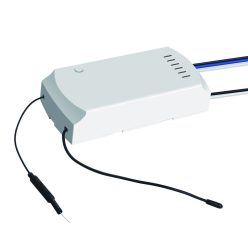
Smart Home Systems: The Revolution of Intelligent Living
Smart home systems are rapidly spreading in the modern world, bringing significant changes to our daily lives. These systems employ technologies that enable the automation and remote control of various elements of our homes. Below, we provide a detailed overview of the different types of smart home systems, their benefits, and the considerations to keep in mind when planning.
What is a Smart Home System?
A smart home system is a network that connects various devices and appliances, allowing them to work together, automatically and remotely controlled. These systems enable residents to make their homes more comfortable, secure, and energy-efficient.
Types of Smart Home Systems
Smart home systems use various communication protocols for their operation. These include Wi-Fi, Z-Wave Plus, Zigbee, RF, Infra, Bluetooth, NFC, and Thread. Choosing the right communication channel is crucial for ensuring device compatibility.
Wi-Fi-based Systems: Wi-Fi is available in almost every home, making it a logical choice for smart home systems. Wi-Fi-based systems support a wide range of devices, including lights, cameras, alarms, and switches. With a central control unit, these devices can work in harmony.
Z-Wave Plus and Zigbee: These protocols are known for their low energy consumption and long range. Z-Wave and Zigbee devices often connect to a central hub that controls the entire system. These technologies are particularly suitable for larger homes and more complex systems.
Bluetooth and NFC: These protocols have a short range but provide quick connections between devices. They are ideal for controlling smaller devices, such as locks or smart lights.
Benefits of Smart Home Systems
Smart home systems offer numerous benefits:
- Convenience: Automated systems simplify daily life. For example, lights can turn on automatically when entering a room, or blinds can rise with the sunrise.
- Security: Smart security systems, such as cameras and alarms, provide remote access and notifications, allowing us to monitor our homes at all times.
- Energy Efficiency: Smart thermostats and lighting systems optimize energy use, reducing costs.
- Remote Control: We can control our homes from anywhere using a smartphone or tablet, allowing us to check and adjust settings even while on vacation.

Planning a Smart Home System
When planning a smart home system, it's important to consider several key factors:
- Choosing a Communication Protocol: The first step is selecting the appropriate communication protocol. This fundamentally determines the system's compatibility and expandability.
- Modular Design: Smart home systems can be expanded modularly, allowing us to start with a smaller system and gradually expand it.
- User Needs: It's important to determine what functions we want to integrate into our homes. This helps ensure we choose devices that truly meet our needs.
How to Choose the Right Smart Home System
When choosing a smart home system, it's worth considering several factors. The first and most important step is to determine which communication protocols our existing devices support and which new devices we want to integrate into the system.
Secondly, it's useful to review different manufacturers' offerings and compare prices, features, and support. Some manufacturers offer specialized solutions for specific applications, such as security, lighting, or energy management.
Thirdly, it's a good idea to try a few smaller systems or modules before making a larger investment. This allows us to understand how the system works and see how it fits into our lifestyle.
The Future of Smart Homes
Smart home systems are continually evolving and becoming more prevalent in everyday life. New technologies and innovations enable us to make our homes even more comfortable and efficient. The integration of intelligent devices brings us closer to a future where our homes are fully automated and interconnected.

Conclusion
Smart home systems revolutionize our daily lives by making our homes more comfortable, secure, and energy-efficient. Choosing and planning the right system is crucial for successful integration and long-term satisfaction. The continuous advancement of smart home technologies ensures that our homes remain up-to-date and offer the most modern solutions.

















